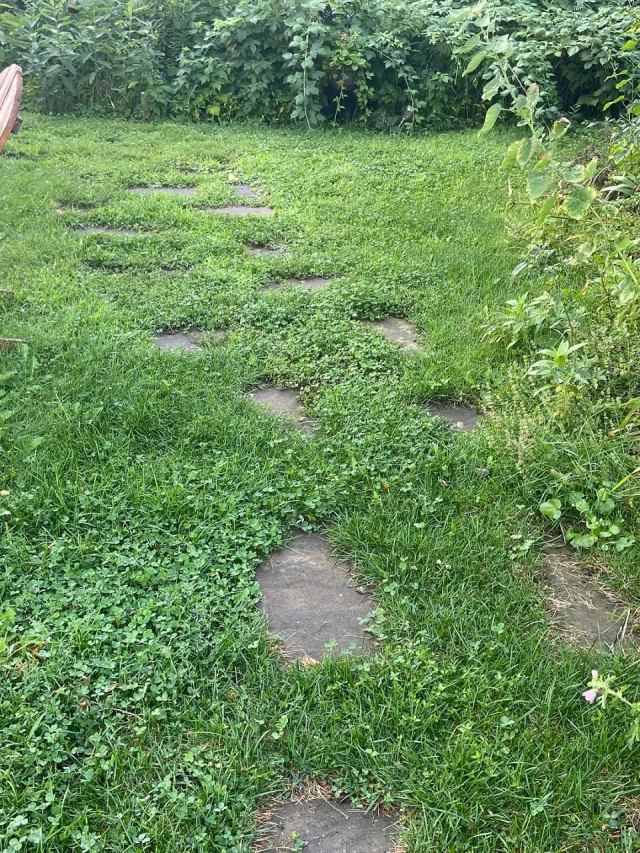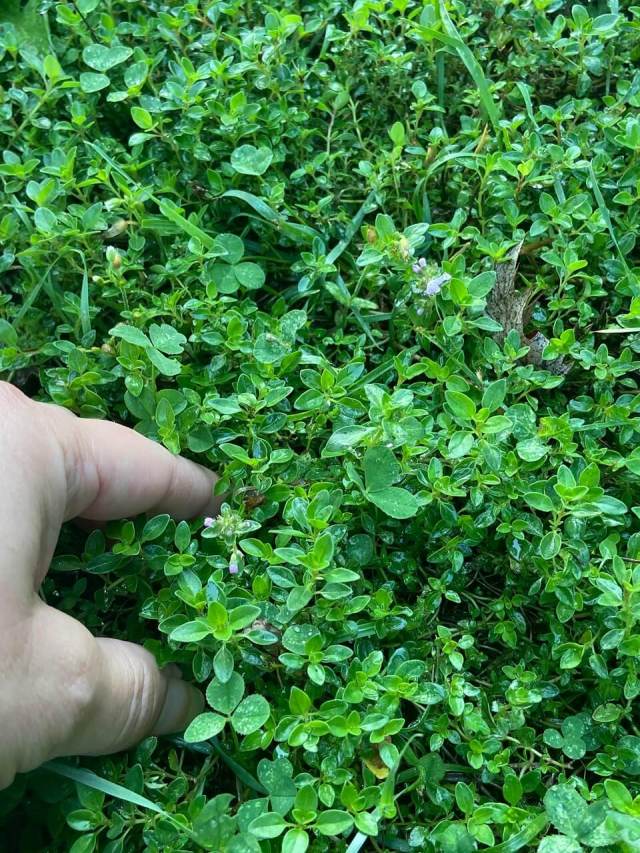A homeowner shared images of their eco-friendly lawn to highlight the beauty of alternative lawns and their low maintenance. Instead of growing traditional grass, the homeowner planted thyme and clover throughout their yard.


"The last pic is trying to show the height difference between the grasses and the thyme. It's not easy to see in pics but there is a noticeable difference," wrote the gardener who shared the images.
The images reveal the impressive growth of the clover and thyme, as both plants grew higher than the grass.
Redditors were intrigued to learn more about the eco-friendly lawn alternative.
"I was worried clover would overtake creeping thyme. Have you noticed that or is the thyme holding its own?" asked one user.
"The thyme definitely holds its own. Hard to be sure since it was all put down as seed, but it might even be outcompeting the clover," responded the OP. "The clover got started quicker and stronger than the thyme, but once the thyme gets going nothing slows it down."
Installing a native-plant lawn in your yard is a great way to reduce your yard's overall upkeep. By growing species native to your area, you can save time and money on lawn maintenance.
In the case of thyme and clover, both plants require less watering than traditional grass, lowering your total water bill. Native plants, in general, use four times less water per year than grass lawns because of their deep, absorbent roots.
When you switch to a native-plant lawn, you can save $275 on water, $50 on fertilizer, and $50 on pesticides and weed control annually.
On top of conserving water, native plants also support the local ecosystem. Native species attract key pollinators and foragers — such as butterflies, bees, and birds — promoting the surrounding environment.
Redditors were excited to see the homeowner implement a native plant lawn.
"Love this," commented one user.
"Nice," wrote another Redditor.
Join our free newsletter for easy tips to save more, waste less, and help yourself while helping the planet.









